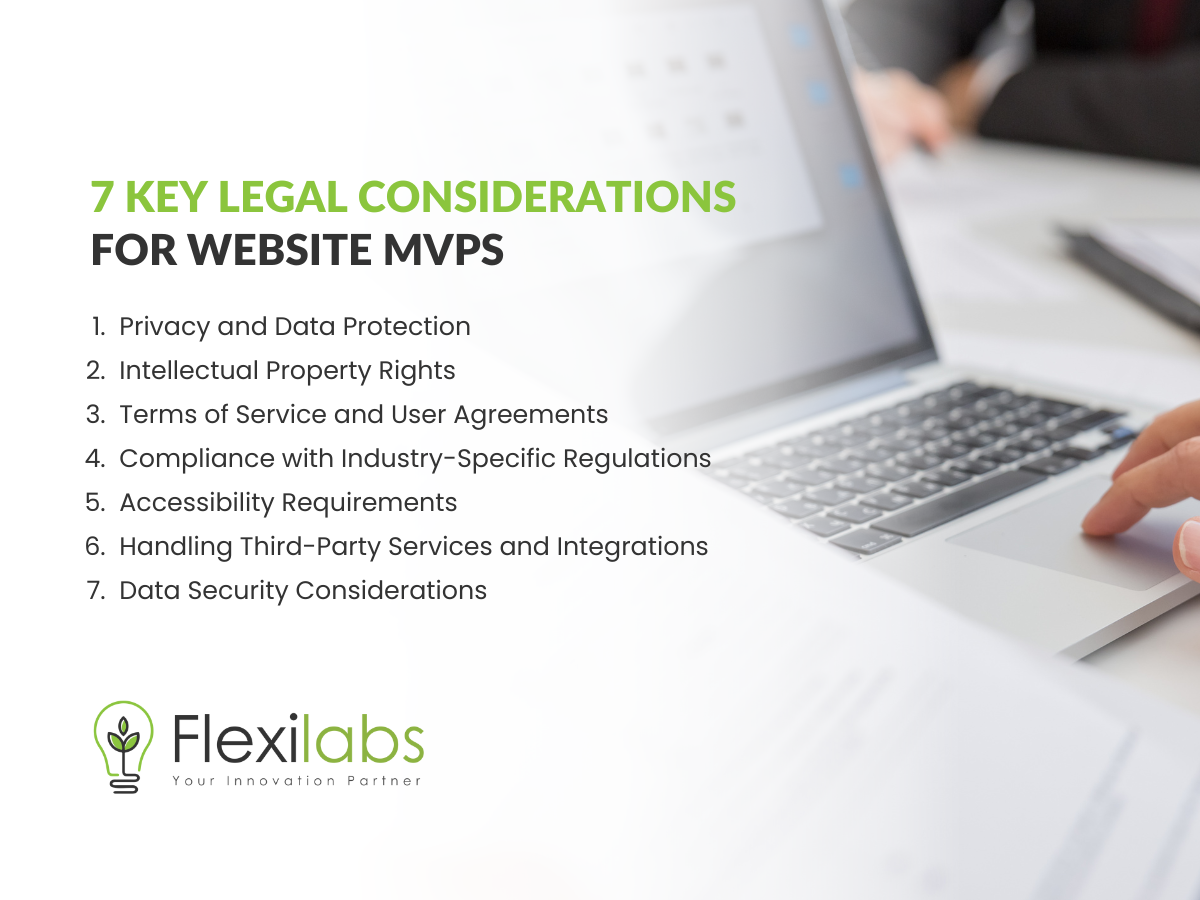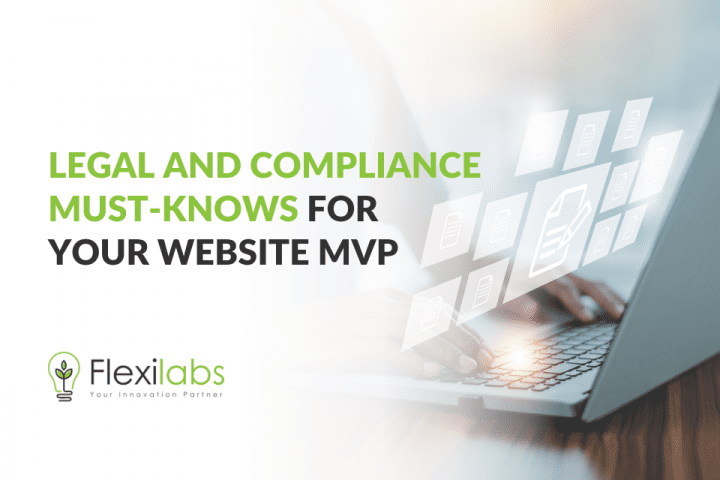Launching a website Minimum Viable Product (MVP) is an exciting milestone for any startup or business. It represents the first tangible version of your product, allowing you to test your concept with real users and gather valuable feedback.
However, in the rush to get your MVP live, it’s easy to overlook critical legal and compliance considerations that could protect your business and its users in the long run. Launching a website MVP without considering these factors could lead to serious legal and financial consequences.
In this article, we’ll explore the key legal and compliance steps you should take before launching your website MVP.
What is Minimum Viable Product (MVP)?
Before diving into the legal considerations, let’s briefly define an MVP. A Minimum Viable Product (MVP) is the most basic product version built with just enough features to satisfy early customers and gather feedback for future development. The concept is widely used in startups and product development to quickly release a functional version of a product and test its core assumptions with real users.
The primary goal of an MVP is to validate the product idea with minimal resources, allowing the team to learn what works and what doesn’t before investing heavily in further development.
Why is legal and compliance important in MVPs?
Legal compliance considerations are crucial when developing a Minimum Viable Product (MVP). They ensure that the MVP adheres to applicable laws and regulations. Likewise, it is essential as it can save a company from expensive legal troubles and help maintain a positive brand image as it moves from concept to full-scale operation.
That said, here are some key legal compliance considerations for website MVPs.
Privacy and Data Protection
Privacy and Data Protection refer to the laws, policies, and practices that aim to safeguard personal information from unauthorized access, use, or disclosure. This area of law focuses on the proper handling, processing, and security of personal data, ensuring that individuals maintain control over their own information.
With increasing concerns about data privacy, any MVP that collects, stores, or processes personal data must comply with relevant data protection laws like GDPR for website MVP in Europe or CCPA in California. Failing to do so can result in heavy fines and loss of consumer trust.
Intellectual Property Rights
Intellectual Property (IP) refers to creations of the mind for which exclusive rights are recognized. Under IP law, owners are granted certain exclusive rights to a variety of intangible assets, such as musical, literary, and artistic works; discoveries and inventions; and words, phrases, symbols, and designs.
When it comes to website MVPs, legal compliance and measures need to be in place to protect the IP involved in an MVP. This includes patents, trademarks, copyrights, and trade secrets that could be core to the business’s value proposition. Ensuring these elements are legally protected prevents competitors from copying or stealing innovation.
Terms of Service and User Agreements
Terms of Service (ToS) and User Agreements are legal documents that outline the rules and guidelines that users must agree to when using a website, app, or software. These documents serve as a binding contract between the service provider (e.g., a startup) and its users. For startups, solid TOS and User Agreements are crucial as they protect the startup legally by defining what is permissible on their platform. They help mitigate legal risks by setting out clear terms regarding the service use, what constitutes a breach, and the consequences of such breaches.
That said, MVPS must have clear service terms and user agreements. The documents should define the relationship between the service provider and the users, detailing what users can and cannot do with the product, what they can expect from the service, and what limitations the provider may have.
Compliance with Industry-Specific Regulations
Compliance with industry-specific regulations involves adhering to specific sectors or industries’ legal standards and rules. These regulations ensure safety, fairness, privacy, and ethical conduct within industries with unique risks or considerations. Legal compliance is critical for businesses to operate legally and maintain a good reputation.
For startups, particularly when developing a Minimum Viable Product (MVP), understanding and integrating industry-specific compliance from the outset is crucial for several reasons. First, non-compliance can lead to legal penalties, including fines, sanctions, or criminal liability.
Likewise, Adhering to regulations enhances a startup’s credibility and trustworthiness. Investors and customers are more likely to support a business that is compliant with industry standards.
Accessibility Requirements
Accessibility requirements refer to the standards and practices that ensure products, services, and environments are usable by people with disabilities. This encompasses various conditions, including visual, auditory, physical, speech, cognitive, and neurological disabilities. The goal of accessibility is to provide all users, regardless of disability, with access to information and functionalities.
Ensuring that an MVP is accessible to people with disabilities is not only a best practice but also a legal requirement in many jurisdictions. For example, in the U.S., the Americans with Disabilities Act (ADA) may require digital services to be accessible to all users. Meeting these requirements is essential for ethical and legal reasons.
Handling Third-Party Services and Integrations
Third-party services and integrations refer to incorporating external platforms, tools, or technologies into a startup’s product or service. These can include APIs for payment gateways, social media integration, data analytics tools, customer relationship management (CRM) systems, and cloud storage solutions.
For startups, leveraging third-party services and integrations is important. If your MVP relies on third-party services, it’s important to understand and comply with the legal implications of these integrations. This includes ensuring that data sharing and processing comply with relevant laws and that any third-party content or technology does not infringe on intellectual property rights.
Conclusion
Launching a Minimum Viable Product (MVP) is critical for startups. It presents a unique opportunity to test a product in the market and gather invaluable feedback from early users.
However, it’s crucial not to overlook the complex legal compliance landscape, which can significantly impact the product’s viability and future success. For startups, integrating compliance from the beginning is an investment in the company’s future. It ensures that as the product scales from an MVP to a full-featured offering, it does so with a framework that supports sustainable growth and innovation.
Don’t navigate the complexities of MVP development alone. Contact Flexilabs today to partner with experts who can guide you through every step of the legal compliance process. Together, we can ensure that your MVP not only meets industry standards but also sets new ones. Reach out now—let’s build something groundbreaking!

